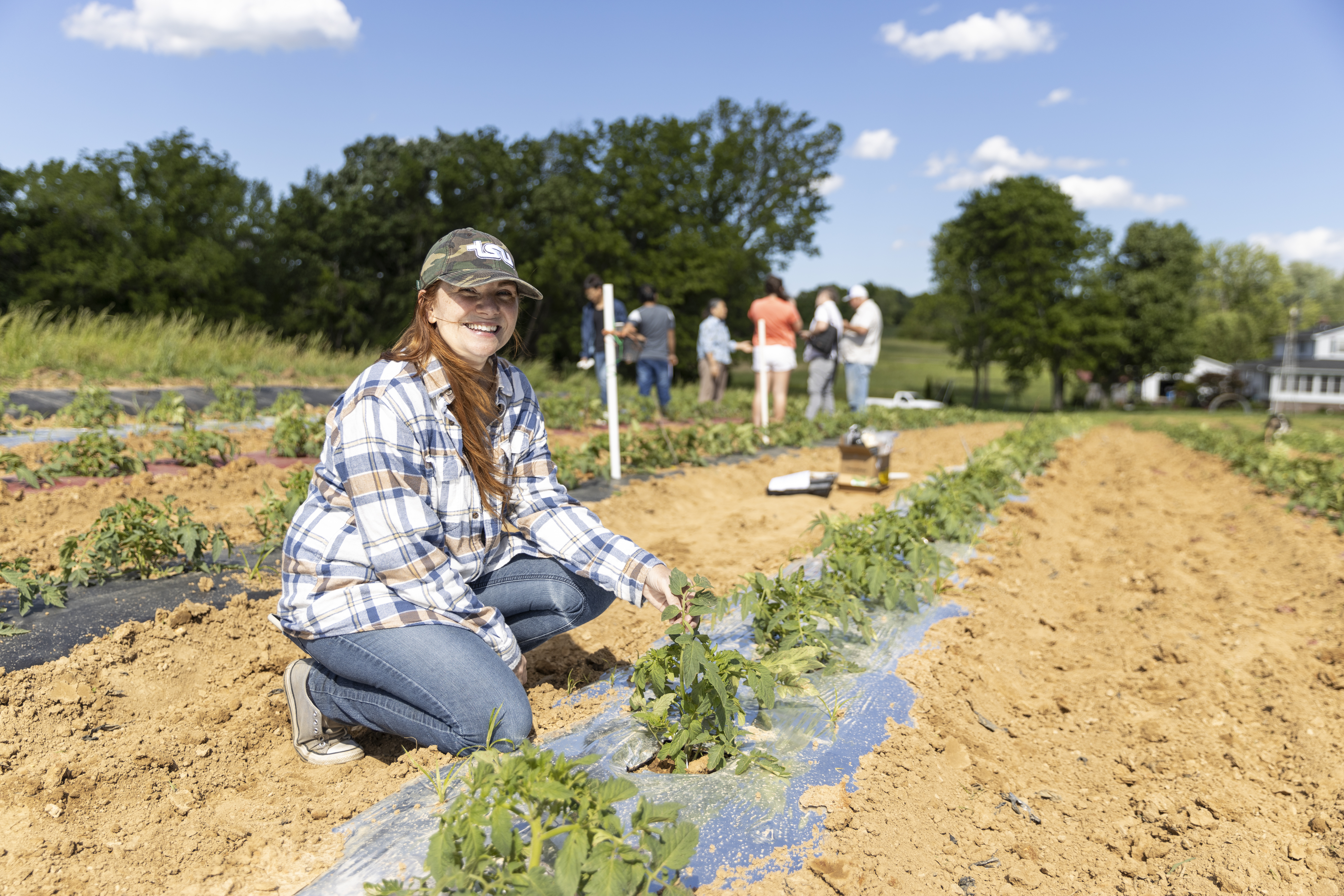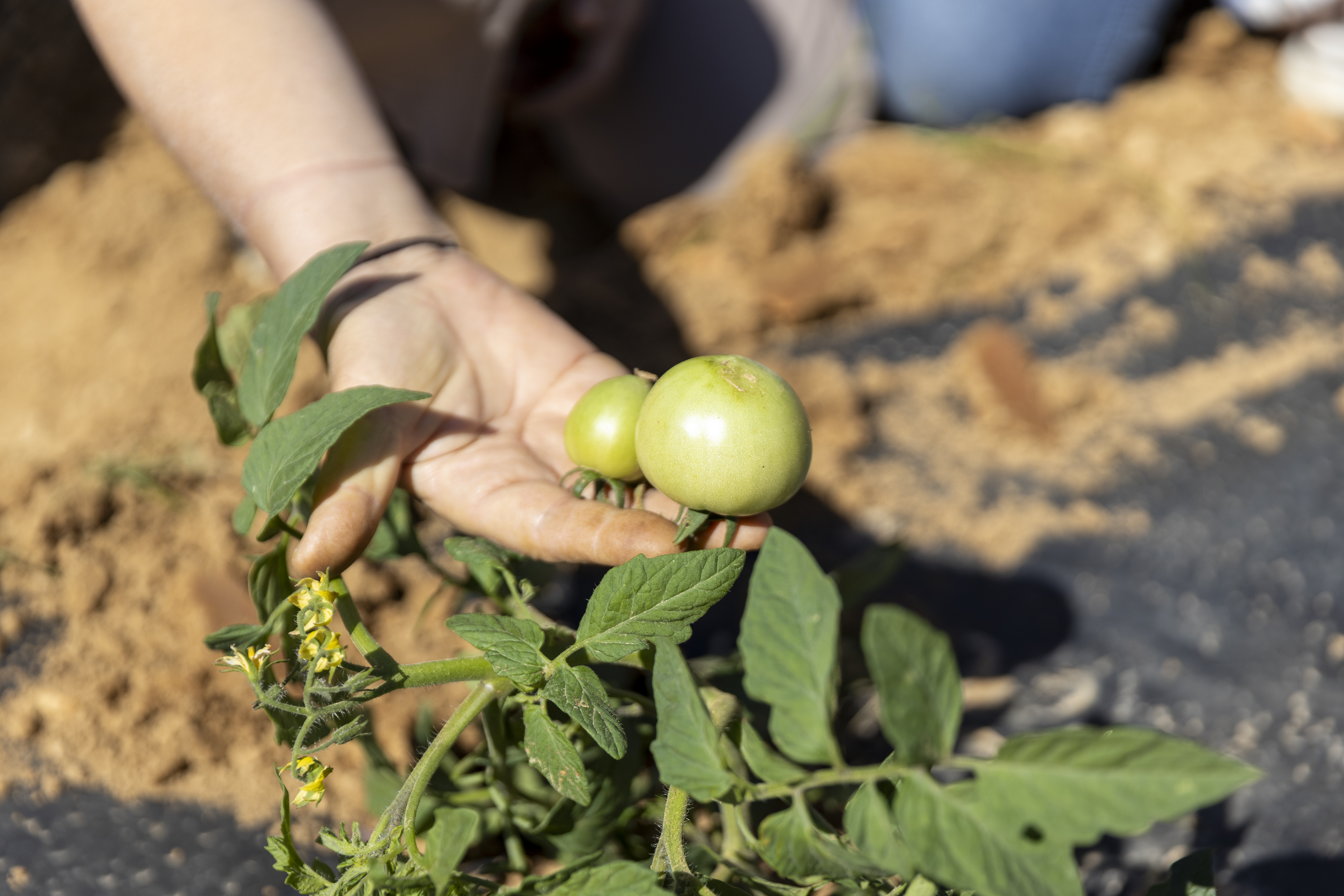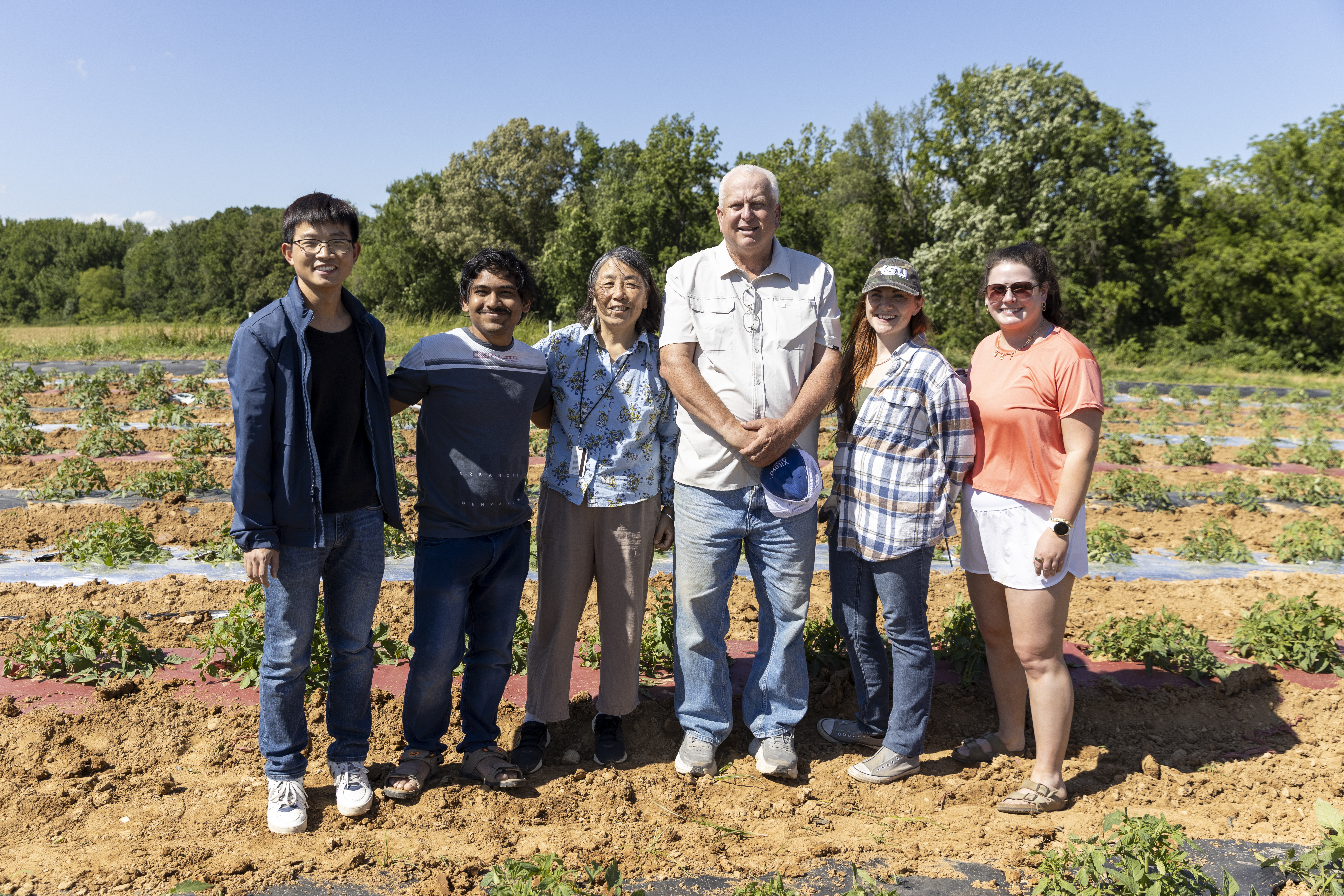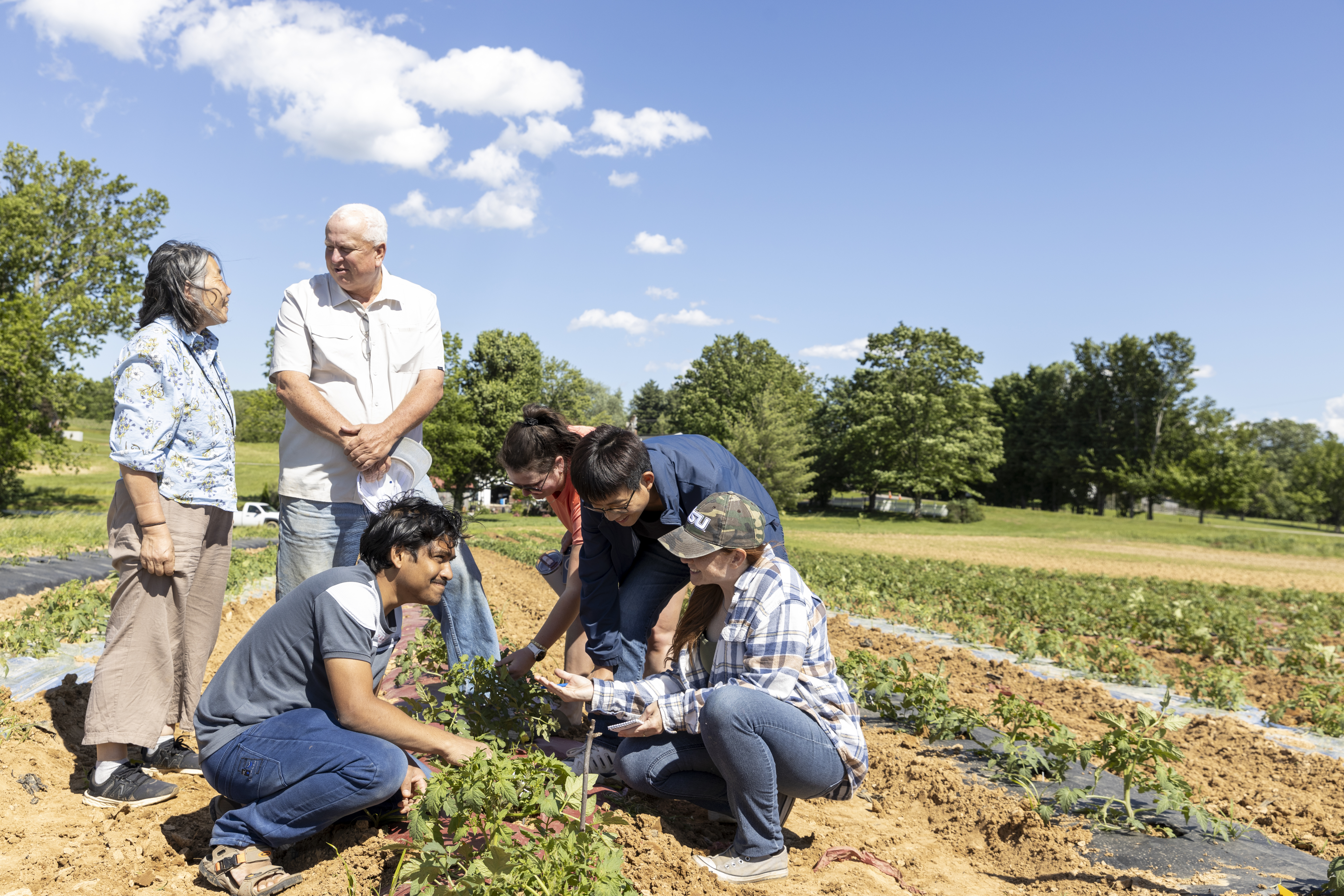By Charlie Morrison, Alexis Clark
Tennessee State University is answering a growing call from farmers across the state: How can we grow better tomatoes in the face of rising temperatures?
With a mission rooted in research, academics, and outreach, TSU’s College of Agriculture (TSUAg) is leading a new project to develop a heat-tolerant tomato variety capable of withstanding Tennessee’s extreme summers. This is an effort driven by student researchers and grounded in local community partnership.

“This experiment is the reason I was excited to jump on board at TSUAg… because it was the farmers who identified this problem for us,” said Katrina Seaman, a recent TSU graduate and now a project manager for the research. “Whether you chop them for a salad or can them, tomatoes are an important consumer product. Especially to the small and medium-sized farmers in Tennessee.” Seaman noted that the dilemma was that the high temperatures in the summer decimated tomato yields.
The effort began after local growers approached TSU at the 2024 Tennessee Small Farm Expo seeking help. In response, Dr. Suping Zhou, a TSU Ag research professor, secured a $300,000 grant from the USDA’s National Institute of Food and Agriculture (NIFA) through its Rapid Response to Extreme Weather Events program to explore potential solutions.
Now, the project is testing tomato varietals, mulching systems, and grafted plants across three distinct farms in Tennessee, using advanced agricultural technology to monitor outcomes.

Dr. Zhou stated that farmers’ feedback guided this project.
“This kind of research is exactly why TSU exists as a land-grant institution,” said Dr. Zhou. “We have the infrastructure, the student talent, and the statewide partnerships to respond directly to issues impacting our region’s growers.”
Seaman, along with three graduate research assistants Jing Zao, Jun Guo, and Madhavarapu Sudhakar, are collecting real-time data with help from sensors that track salinity, temperature, moisture, and light at the soil and canopy level. This gives the team of researchers a full picture of the growing conditions across each location.
“We’re taking decades and generations of experience from the farmers and then applying it to TSU resources,” Seaman said. “At the end of this project, we want Tennessee farmers to know how to adapt to their growing practices during hot summers.”
TSU is working with Eldridge Farm in Woodlawn, Smiley Farm in Ridgetop, and Little Creek Produce in Cookeville. Each location brings a unique environment to test how tomatoes perform in different mulching systems, field types, and temperature controls. The researchers have also teamed up with the Nashville Farmers’ Market to tackle the heat tolerant tomato project.

“What I’m taking away from this, especially as I look toward a career in Extension, is that collaboration is at the heart of this work,” Seaman said.
The team recently presented early findings at Little Creek Produce this summer, inviting growers from across the region to see the technology in action and learn about heat mitigation strategies.
As climate conditions continue to challenge food systems, TSU’s work signals the vital role land-grant institutions and HBCUs play in agriculture and food security.
“This project represents the very best of our land-grant mission by connecting students, researchers, and communities to solve real-world problems,” said Dr. Zhou. “And it shows that TSU is not only capable but essential to the future of agriculture in Tennessee.”
To learn more about the College of Agriculture, visit www.tnstate.edu/agriculture/.






